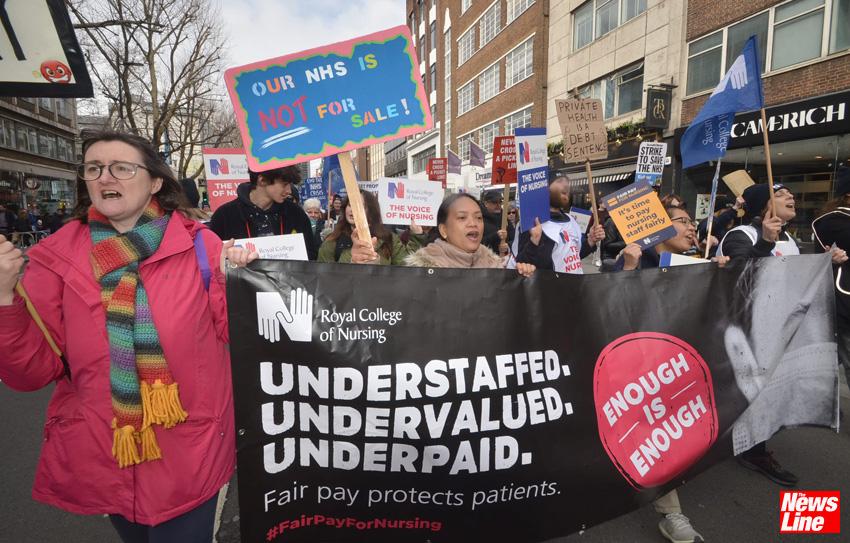THE LABOUR government’s so-called refreshed NHS Workforce Plan, which essentially is to keep patients out of hospital and treat them in the community instead, is doomed to fail through lack of nurses, the Royal College of Nursing (RCN) warned yesterday.
Responding to the announcement from the UK government and NHS that they will shortly publish a ‘refreshed NHS Workforce Plan’, RCN General Secretary and Chief Executive, Professor Nicola Ranger, said: ‘Transforming care and shifting it into the community requires major investment.
‘Our analysis shows that crucial parts of the community nursing workforce, including health visitors and district nurses, are set to be half of what they were 20 years ago, while the number of people studying nursing has collapsed in every region in England.
‘The government’s reforms must come with a plan to rescue the largest NHS workforce.
‘This means better pay and a loan forgiveness model to boost recruitment into the profession.
‘The RCN’s own analysis shows that the specialist nurse workforce is on track to halve in size compared with two decades ago.
‘Without a funded intervention by the government, the number of district nurses will be down 61% by the end of this parliament (2029) compared with 2009.
‘Health visitors are projected to fall by 44% and school nurses by 42%.
‘In total, the workforce across the three specialties is set to halve in size (49.78%), from 18,070 in 2009, to 8,995 in 2029, just as demand for services continues to increase.’
Health Secretary Wes Streeting told health chiefs in England to stop worrying about meeting four-hour A&E waiting targets this winter.
The message was delivered at a meeting with hospital bosses and other NHS leaders in London yesterday amid mounting concern about the winter pressures that are building.
Last week data showed hospitals were experiencing significant pressures for this stage of the winter, with ambulances facing long waits outside A&E and 95% of hospital beds full.
Government sources said the health secretary wanted to provide ‘reassurance’ to the NHS that it would not be penalised if performance against the target deteriorates.
They claimed it did not mean the target was being dropped, but that patients must be prioritised according to ‘clinical need’.
‘We have to be realistic about what can be achieved in the coming months.’
Speaking after the meeting, which was attended by 700 ‘health leaders’ either in person or remotely, Streeting said: ‘We inherited a broken NHS that saw annual winter crisis as the norm. This year, we’re seeing record pressures on services as we move into December.’
Dr Tim Cooksley, of the Society for Acute Medicine, said: ‘The stark reality is not that hospitals and staff on the frontline are manipulating targets, but that they are simply unable to deliver safe care even when trying their utmost to do so given the impossible situations they are in.’
He accused the government of lacking a coherent strategy to tackle the pressures in the emergency care system, pointing to the fact the government has made it one of the key missions to deliver the 18-week target for non-urgent care this parliament, while not making the same commitment for the four-hour A&E target.
